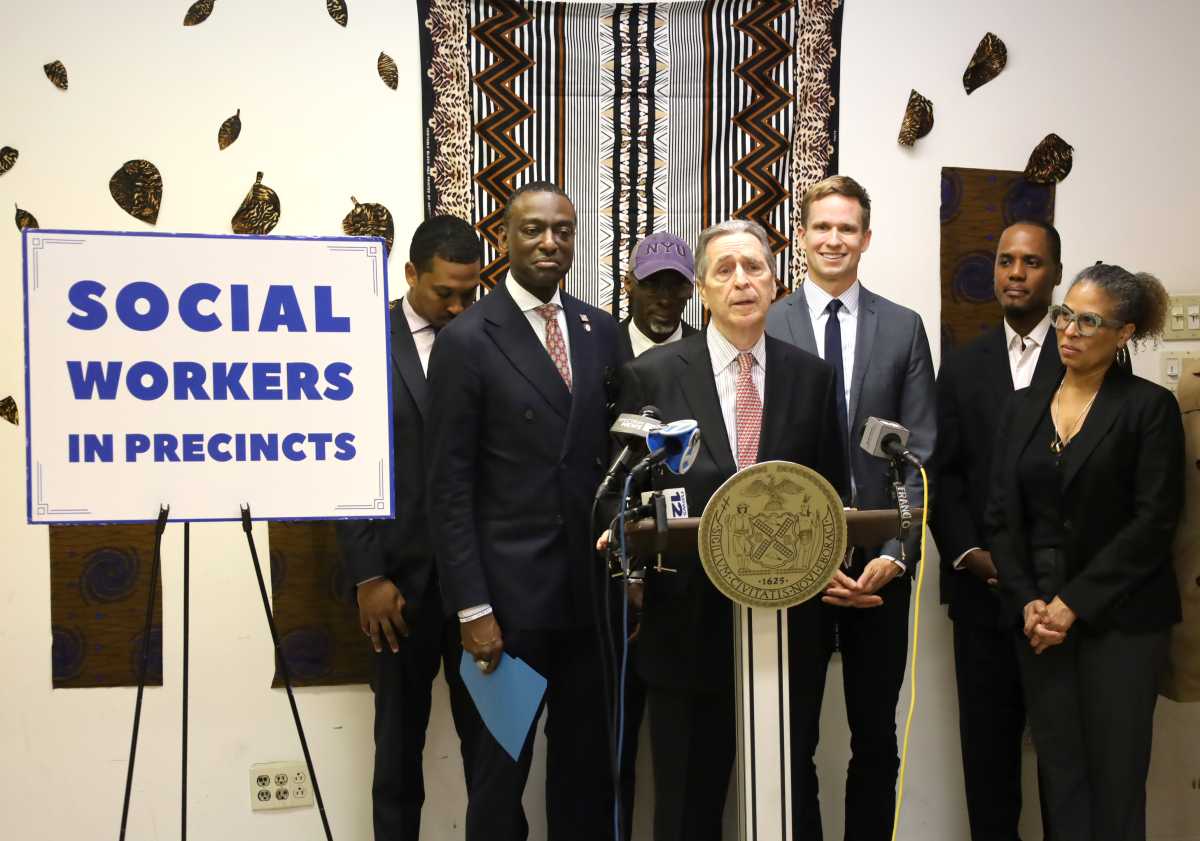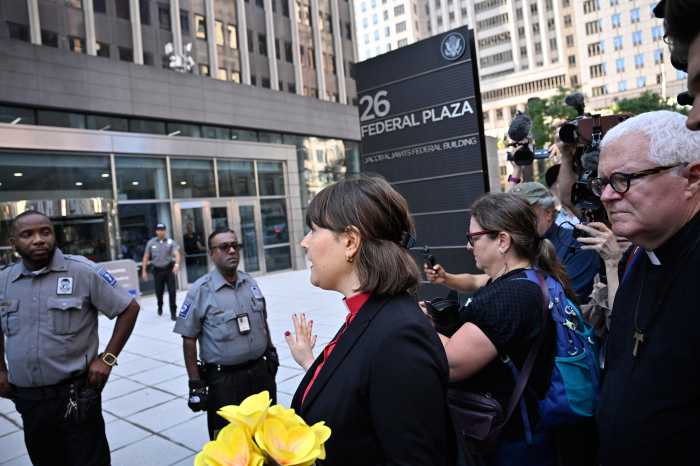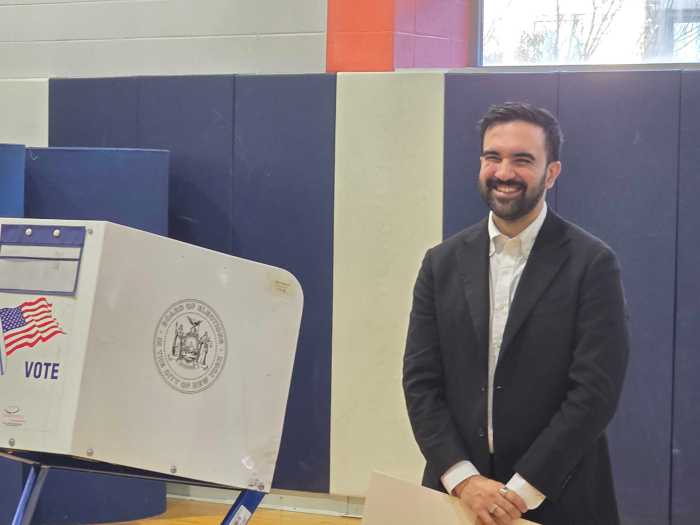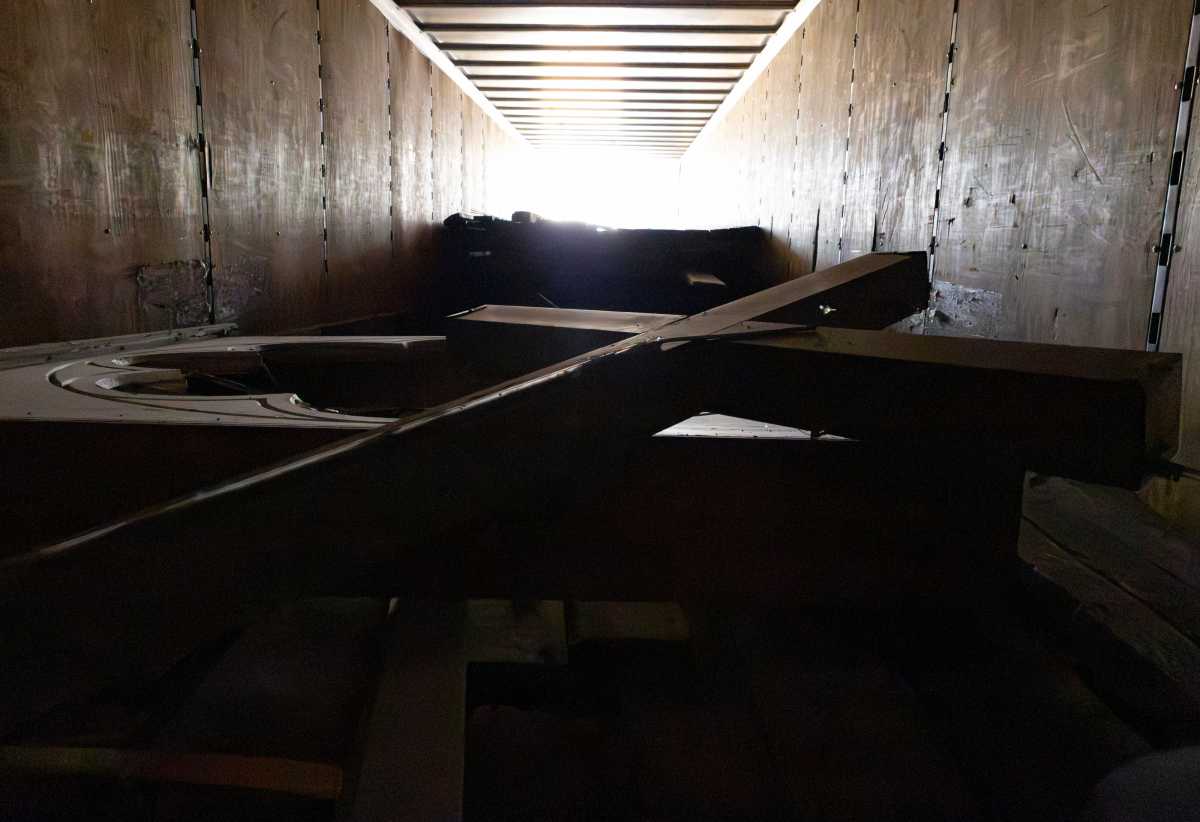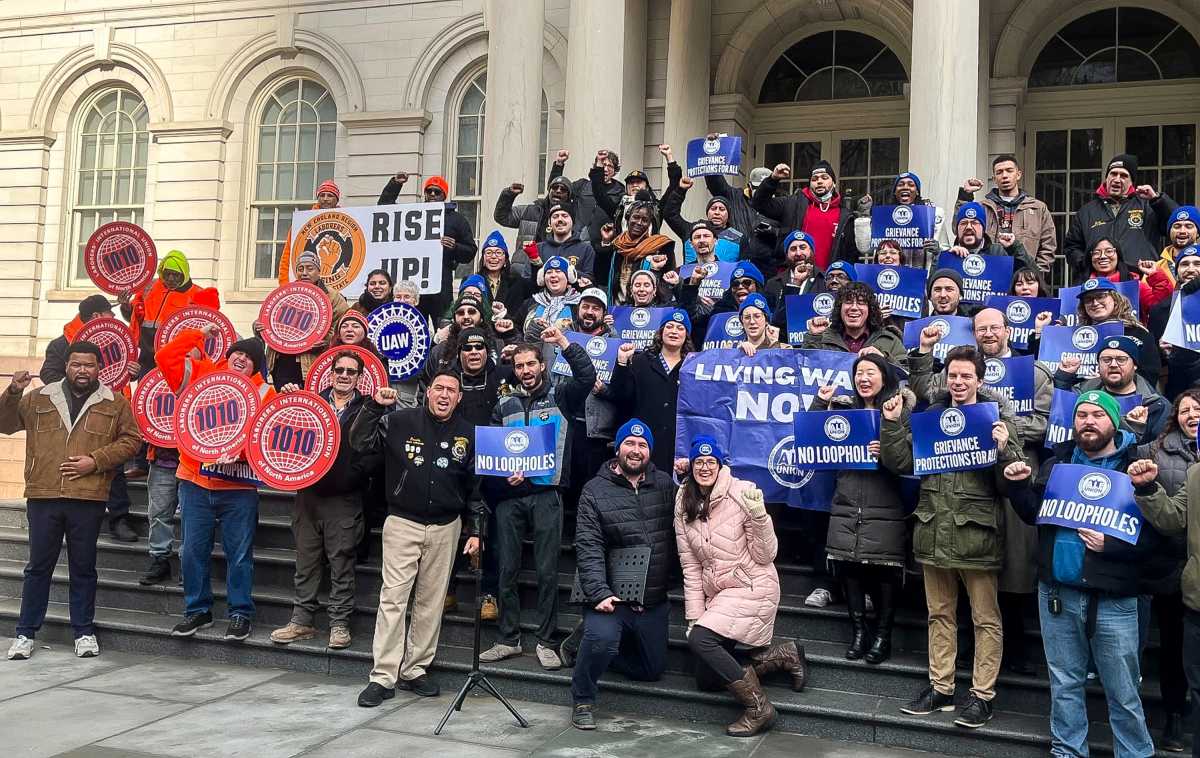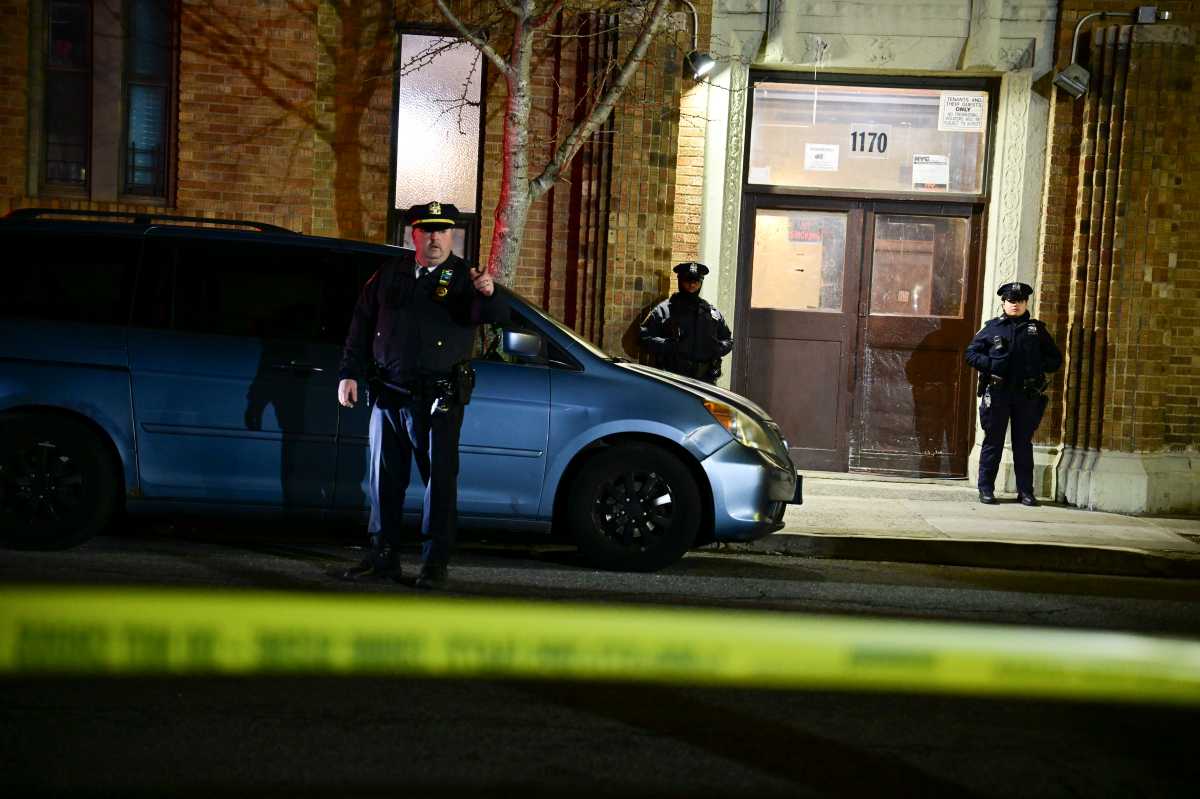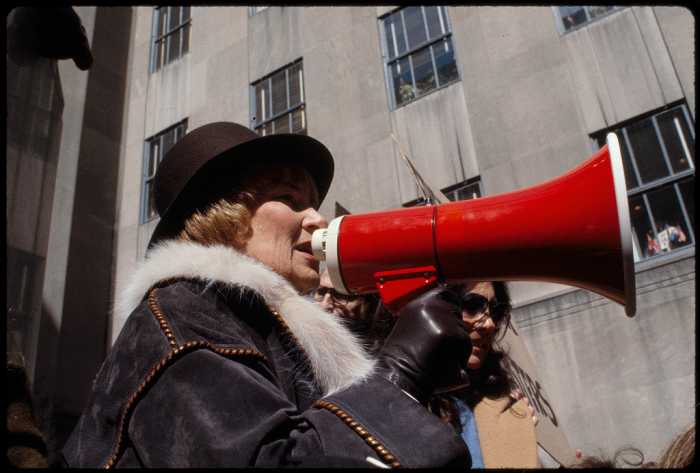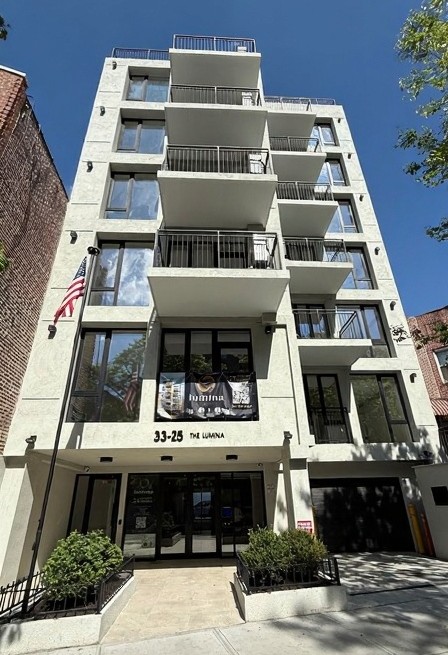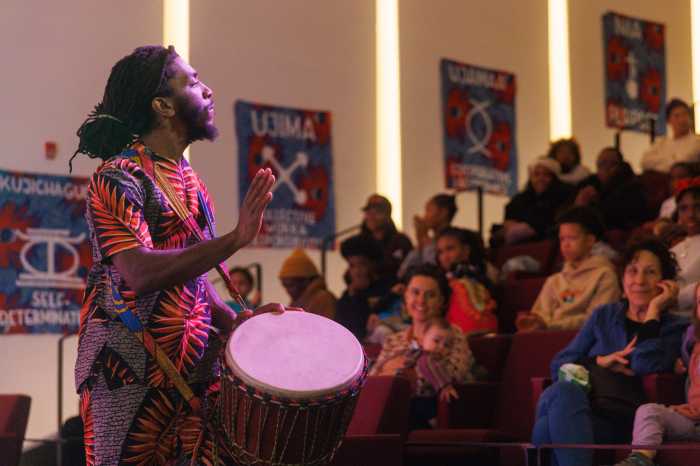Getting arrested in NYC entails getting cuffed, fingerprinted, placed in a holding cell — and, soon, consulting with a social worker, should a new City Council bill becomes law.
City Council Member Erik Bottcher (D- Manhattan) introduced legislation at a press conference in Harlem on Thursday that would require the Department of Health and Mental Hygiene to place licensed social workers in all 77 NYPD precincts throughout the city.
The reason? To potentially break the constant arrest-release cycle that is prevalent in the criminal justice system, Bottcher said.
“What we’re seeing in our communities is people being cycled in and out of police precincts over and over again often for petty crimes like shoplifting, and I’m not observing concrete attempts to address the underlying conditions with these individuals,” he explained.
Cities across the country, including New York City, have been experimenting with pilot programs that bring social and EMS workers into the field without police officers to assist during mental health emergencies. But under Bottcher’s legislation, the therapists would stay put in station houses, and possibly become part of the NYPD’s 19,000-member civilian staff working within the agency.
What does the bill entail?

Bottcher’s bill would require at least one social worker to be on staff at all times at every precinct. They would have direct contact with suspects to evaluate them for substance abuse and other mental health disorders, provide direction for follow-up services and connect them with family.
“This is what social workers do, and that’s why we need them in precincts,” Bottcher said. “Social workers are trained to work in a wide range of venues and to evaluate people through the course of conversations. This is where they shine.”
Dr. Allie Sharma, a psychiatrist, said the proposal could prove beneficial for recidivists who constantly enter and exit the criminal justice system.
“Just as NYC often utilizes mental health professionals along with first responders who are responsible for 911 calls, the integration of mental health professionals at police stations could play an important role in getting people the mental health care they need in a time of crisis,” Sharma, who is the co-founder and chief medical officer of Being Health, a mental health practice in Lower Manhattan, said.
Bottcher said details of the bill, such as how many social workers will be staffed inside inside each station house, still need to be “worked out collectively” as the plans progress.
“The mechanics of how it would work would differ from precinct to precinct and would probably be developed in partnership and consultation with the NYPD, health department and other experts to work out the best system,” Bottcher said.
What are New Yorkers, therapists and cops saying?
Some New Yorkers, including therapists and police officers, have been critical of similar programs that have social workers doing traditional police work, mostly citing safety concerns for unprotected civilians who can wind up getting hurt while interacting with dangerous criminals.
For example, the city’s B-HEARD program that sends teams of EMT and social workers to mental health emergencies instead of police received lots of backlash when it was launched in 2021.
One retired NYPD police officer is skeptical of programs such as B-HEARD and similar initiatives like the legislation Bottcher wants to pass.
“It’s one more person’s safety police have to worry about,” he said. “If they’re interacting with a suspect, will they wear bulletproof vests? Be trained in self defense? There will be an outcry when the first one is injured.”
That is where the NYPD’s expertise comes into play, Bottcher noted.
“This is where the expertise of the NYPD is critical so we can ensure that the safety of everyone is maintained just as we have to confirm that the safety is maintained during all other steps in the criminal justice process, and that includes civilian personnel,” Bottcher said.
Percy Pitzer runs Pitzer Family Education Foundation, a national organization that helps former inmates get back into society and provides them with resources to avoid being incarcerated again. He said if executed correctly, the bill can potentially work.
“First of all, the difficulty in hiring corrections officers and the problem of increase in prison population, I think all alternatives need to be looked at,” Pitzer said. “I don’t know if this is the answer, but I know we have to come up with alternatives to keep people from being incarcerated in the first place.
He added there has to be a partnership between the police and the social workers.
New Yorker Shavon Terrell-Camper, a licensed clinical social worker and wellness coach, said therapy during an arrest can be helpful for people in need of support to be routed into the mental health system, instead of the criminal justice system, but agrees with Pitzer that details would have to be ironed out efficiently in order for it to work.
“This creates a question of whether an effective partnership between the mental health system and the justice system could exist,” she said. “It also questions if the mental health system has the capacity to get people the help they truly need versus simply becoming another layer of paperwork. The major issue at hand is logistics.”
She added that it all comes down to the individual — whether he or she wants help.
“With the social work side, the person in need must be open to receiving mental support, and in an impaired mindset, you’re less likely to say yes to things you may in fact need, and things that essentially will be good for you. Overall, getting mental help is necessary, but will people have expedited mental health services? Can the mental health system support that? An issue I’ve found is that even those who may desire mental help support and resources, must await the formal process. In order for this to all work, it’ll have to be an immensely secure process to clear all the red tape.”



